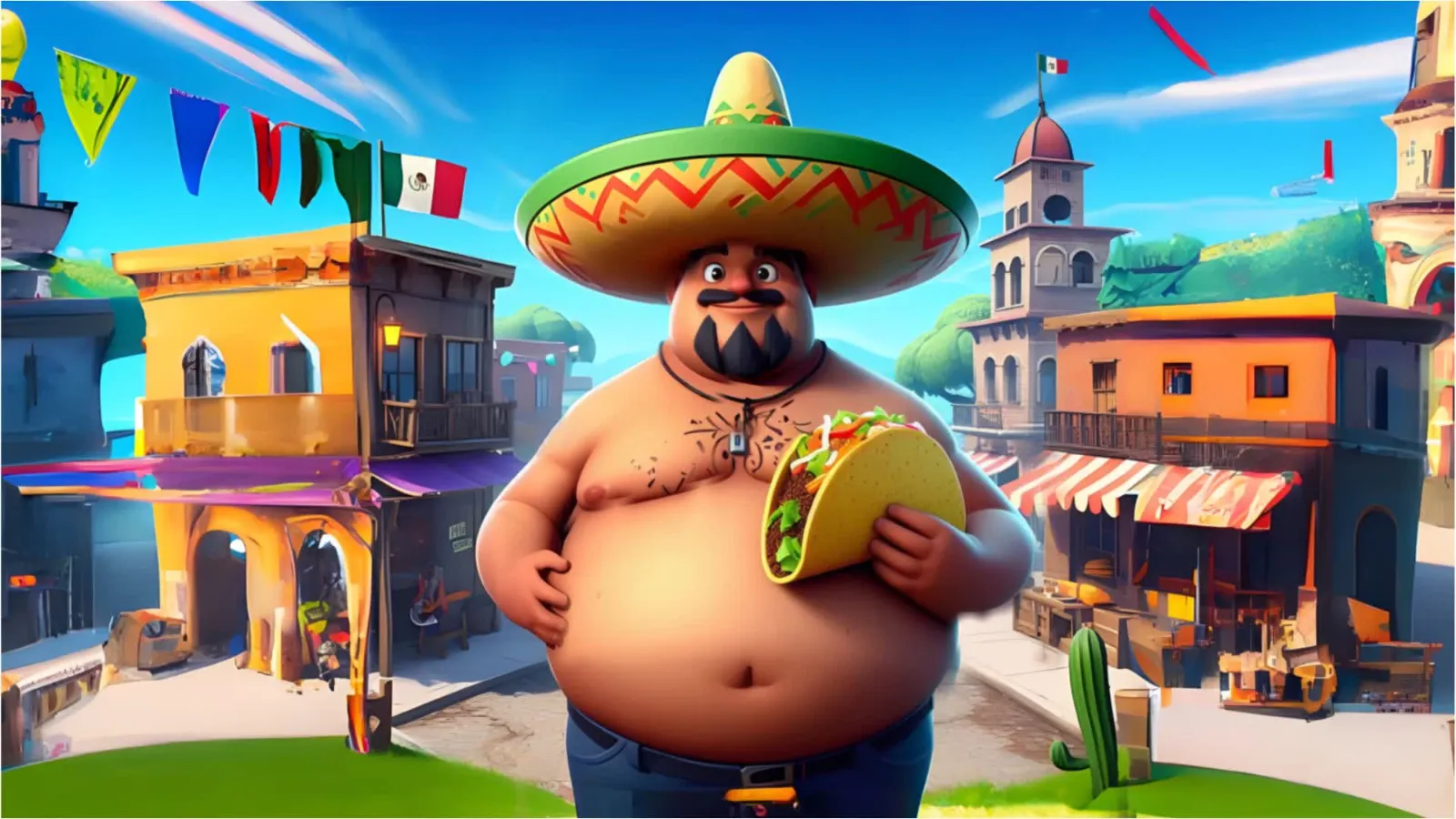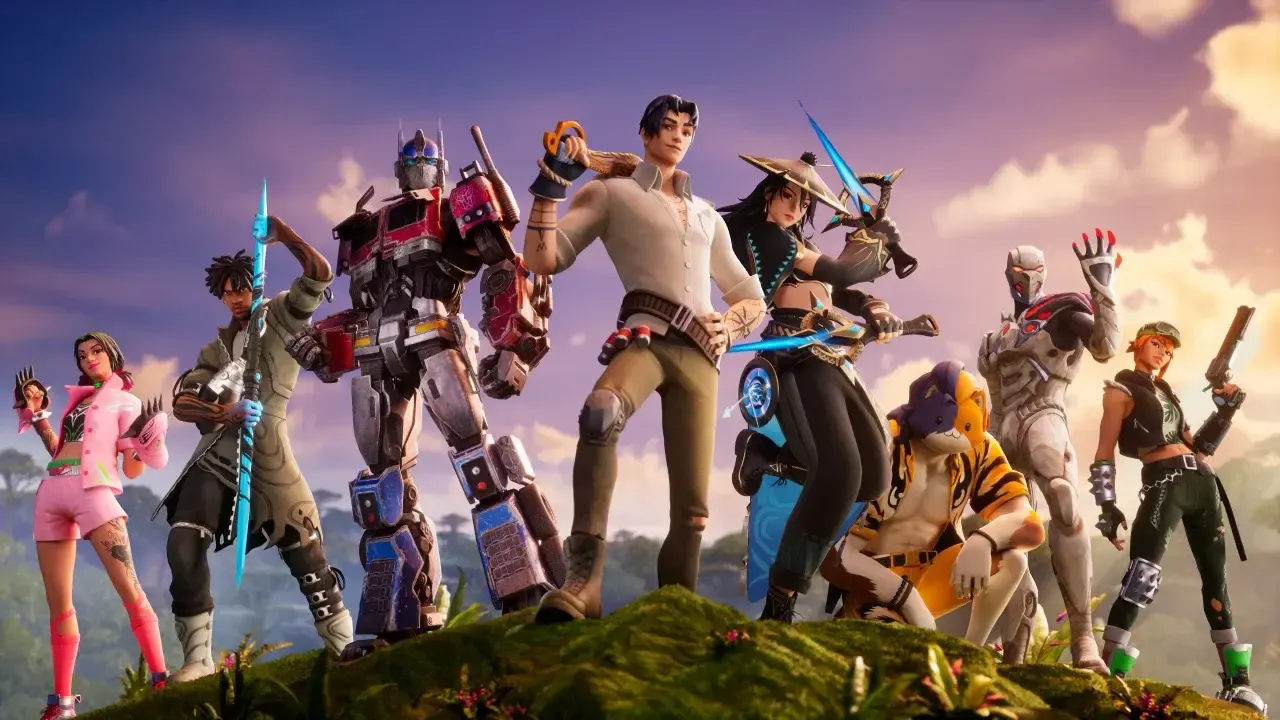'Fortnite' Fail: Epic Games Scrambles to Remove Racist AI-Generated Images
Developer Epic Games is working to purge user-created islands with imagery depicting racist stereotypes, apparently generated by AI tools.
 Image: Shutterstock
Image: Shutterstock
Following outcry from players, Epic Games is purging racist AI-generated images uploaded by users to the popular battle royale game Fortnite, according to a report by Kotaku.
The video player is currently playing an ad.
One of the features that made Fortnite the smash online game it is today is the ability for users to create their own maps and share playable experiences with the world. This outlet for creativity, however, means that users can potentially upload problematic content, which is what's happened here.
Recently, users began to notice island maps featuring crude AI-generated images that perpetrate racist stereotypes. As Kotaku reported, examples of maps include those with names like “Arab Zonewars,” “Nigerian Zonewars,” and “China Zonewars.”
The maps featured racist and apparently AI-generated images that perpetuate stereotypes, including Middle Eastern men holding bombs and Black men eating fried chicken. While most of these maps had small server populations, one map, “Jamaica Zonewars,” had over 35,000 active players earlier this month. Image: Artwork from a banned island from the user "flaming" in Fortnite Creative.
Image: Artwork from a banned island from the user "flaming" in Fortnite Creative.
“Many of the islands referenced have already been removed, and the creators actioned,” Epic Games told Kotaku in a statement. “We’ve already addressed more than 100 islands with content violations that use this similar thumbnail format and will continue to do so.”
Epic Games added that discriminatory content has no place in Fortnite and violates the company’s island creator rules, adding that users who violate these guidelines could have their accounts permanently banned.
Fortnite Players Can Still Claim Part of a $245 Million Settlement—Here's Who Is Eligible
UPDATE: The FTC has extended the filing deadline to February 29, 2024, giving Fortnite players more than an additional month to seek a share of the settlement with Epic Games. Full details below. ORIGINAL: Fortnite creator Epic Games settled multiple claims with the U.S. Federal Trade Commission (FTC) last year regarding privacy issues in the game, and what the agency alleged were “design tricks” that deceived players into spending money that they didn't intend to. Now, players can register for...
“Our human moderation team reviews all content prior to publication, and we are actively updating our island creator rules and moderation training programs to minimize the number of violating maps that reach players,” Epic Games said. “We encourage players to report any islands they see that may violate our rules.”
In a statement provided to Decrypt's GG, Epic Games said that all user-created islands are reviewed by moderators prior to publishing, but said that the team takes a light touch. Image: Artwork from a banned island from the user "drzen" in Fortnite Creative.
Image: Artwork from a banned island from the user "drzen" in Fortnite Creative.
"We ask our moderation team to assume good intent on behalf of the creator if they’re unsure about a content violation so we don’t over-censor," Epic Games said. "Sometimes this means things get published that shouldn’t, and we work quickly to take any offending content down and write new training materials for our moderators. Creators who are found to be in violation of our creator rules face a variety of enforcement actions, including permanent publishing and monetization bans."
The publisher added that it is working on updating its "island creator rules and moderation training programs."
Joining in on the generative AI craze, the Epic Games Store began allowing games and submissions that featured AI art and other elements in September. This came after rival PC gaming marketplace Steam initially took a stance against AI content, but it has since softened its rules amid a rise in such submissions. Artificial Intelligence
Artificial Intelligence
'SpongeBob Did 9/11,' Elmo With a Knife: Shocking AI Art Goes Viral
Generative AI has made it easier for the average person to create artwork and other content. It has also made it much easier to spin out some truly wild and controversial stuff—like AI-generated images of SpongeBob SquarePants or Nintendo’s Kirby flying jetliners into the World Trade Center. While AI image generators have been used to create deepfake sexual material, such tools are also being employed to craft scenes depicting violence or risqué scenes—even involving politicians, historical figu...
“We don’t ban games for using new technologies,” Epic Games founder and CEO Tim Sweeney wrote on Twitter at the time, noting that Epic Games had opened up full self-publishing earlier that year.
While AI developers have invested heavily in purging offensive images from their models, users have found ways to “jailbreak” the models using specialized prompts. In October, AI-generated images of SpongeBob SquarePants or Nintendo’s Kirby flying jetliners into the World Trade Center went viral.


































